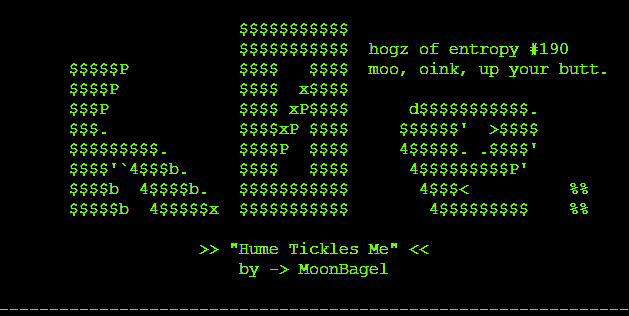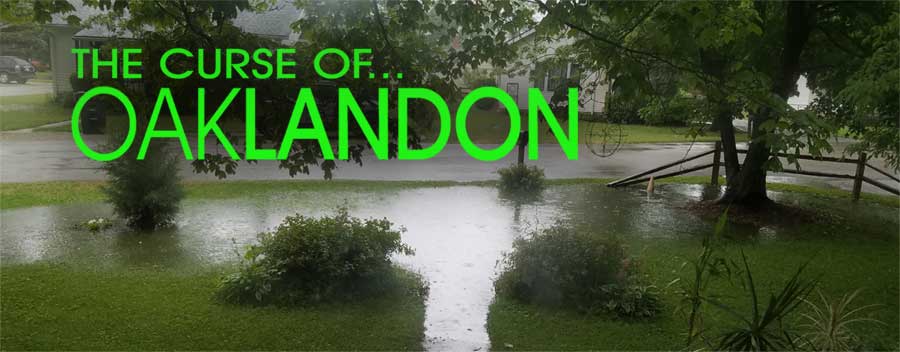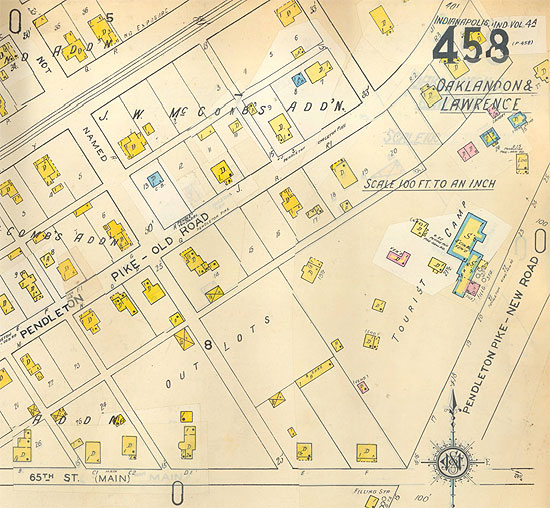This article serves to usher in a brand new topic area here on BlogDogIt:
"From The Gopher Hole"
There is so much interesting content in the internet depths of Port:70 that I have decided to drag some of the more glittering gems into the light of day.
Enjoy!

h0e. >> "Hume Tickles Me" << by -> MoonBagel
I would like to introduce this paper by stating three things quite
simply. First, this is quite possibly the stupidest move I have ever made
in my "scholastic career." Second, this class landed at bad time for me --
it managed to conveniently coincide with a fun-filled period of existential
angst. ("Katie, you have more angst than anyone I know" -- my mother over
Christmas Eve dinner, December 24, 1997). Finally, this is the first time
in well over a year I have felt truly inspired. With these things in mind,
I proceed:
While I have tremendously enjoyed being a part of this class,
occasionally contributing a little insight or any of a number of inane
comments and listening to those of others, I feel compelled to admit that I
do not have any impenetrable, or even defendable, opinions regarding the
vast majority of the topics we have covered in this class. There were
concepts and excerpts which did touch me profoundly. I was doing some final
reviewing on the afternoon of the 13th, and it was those pieces that stuck
out in my mind above all others, and those which stick with me as I type
this paper. The prompt given for this final was "Explain your point of view
concerning major philosophical issues studied in this class." I intend to
do so. I realize fully that what follows is not what was intended when the
assignment was given, but as I started to type the original draft of my
paper, I realized this was going to be yet another entry in the long line of
BS papers I have written for a huge number of classes over the course of the
past few years. It occurred to me that this was NOT what I needed to be
writing to fulfill what I consider to be goal of this final. If nothing
else, this assignment begged brutal honesty, and that is what I offer as
opposed to my usual steady stream of bullshit. I cannot begin to verbalize
the adrenaline rush I felt when I realized this was my big, bright, shiny,
sparkling, glowing chance to write honestly and feel completely justified.
Regardless of my grade, I will come away feeling fulfilled, knowing that on
this occasion I was not just playing a game with my teacher and that I wrote
something that I can take pride in.
At the beginning of the semester we read Plato's Apology. It floored
me, as does most any writing that involves a person standing up, unfailing,
for something that is Right or Just. One thing that bothers me most about
the generation I am a part of is that the vast majority of us have nothing
we are willing to stand up for. To see that strength elsewhere is immensely
reassuring to me when I wonder if there is any hope that we will ever even
resemble virtuous people.
Reading that passage over is a large part of the reason I decided to
complete this assignment as I am. While a final paper for one class in high
school is fairly insubstantial compared with Socrates dying for his personal
belief system, I keep in mind the Emperor Marcus Aurelius stating and
restating that our Virtue is something we should prize, and we should never
tarnish it by doing anything that is not right.
My little duct-taped copy of The Meditations of Marcus Aurelius is
another thing that affected me deeply throughout this semester. I plan on
purchasing the book very soon after turning in my class copy, and along with
that, my journal will keep me in touch with what I initially felt when I
read his words. Attitude is everything -- if a task or an obstacle is set
in your path, a negative attitude will not help you to continue your
journey. I often recall what Aurelius wrote about Maximus in the fifteenth
entry of Book 1 -- "no man could ever think that he was despised by him." I
believe I could be a truly content person if, in old age, I could look back
on my life and be assured that no man ever thought himself despised by me.
I typed out the first entry in Book 2 and keep it in my room as a reminder
that in every day of my life, I will meet people with unimaginable
differences, and I must learn to deal constructively, and hopefully kindly,
with each. I do not have to agree with someone to respect them, or to
simply tolerate them. I was reminded that sadly, people are generally
compelled to grasp at the most insignificant, fleeting, insubstantial
abstracts in their lives and become ardently attached to their accumulated
material wealth. I was simultaneously reminded that I am capable of
transcending that... well, perhaps I will not be able to transcend it
entirely (as I am human), but I can keep at the forefront of my waking
thoughts the importance of family, Love, Virtue, and Honor. As I age, and
even in my youth, I will bear in mind that death is a part of the life cycle
and is inevitable; I should not fear death, rather, I should accept its
inevitably and move forward with my life through the time in which I do have
control. The simplicity of life is important -- too much is lost in the
overbearing spectacle some men shape their lives into. Nature does not
oppose itself, as that is unnatural. The idea that we ultimately are the
same material as the soil, an oak tree, or the star Alpha Centauri is quite
humbling. Each creature is born of the death of another.
I was very impressed by Immanuel Kant's astoundingly logical
discussions involving the hypothetical and categorical imperatives and sense
of duty. They appear to be workable and effective in practice -- virtually
every mentally stable person can agree on such categorical imperatives as
"murder is wrong." Though it has been said that "the road to hell is paved
with good intentions," I prefer Kant's "without the principles of good will
this may become evil indeed." There is a huge gap between intentionally
killing someone and accidentally killing someone, one that is certainly
worthy of note. If it provides nothing else, taking the time to ask whether
a decision is one you would be comfortable fully shouldering the blame for
and if you would be comfortable if that decision was echoed throughout the
world gives you time to thoroughly think through a choice. Differentiating
between profound concerns and relatively trivial ones through the
hypotheticals and categoricals is also valuable.
Plato's Cave struck me, as well. It can takes one's previously
infallible sense of what is real, and flip it around, kick it and poke at it
a little, and leave you with a new, perhaps unsettling, perspective. It
gives a profound twist to the phrase, "food for thought." After I first
read this allegory on one of the first days of this semester in my Language
Arts class, the concept of our lives being controlled by puppeteers
manipulating shadows proceeded to dance about in my head for the rest of the
day, and a number of days after. Whether this is taken in a political sense
or a more religious one, the perspective it provides is invaluable.
The next time I see "fish" spelled "ghoti" I will be reminded of
Russell and Wittgenstein, and how they had far to much time on their hands.
They made reasonable points -- it is impossible to know precisely what
another person is attempting to express when you speak with them. However,
I feel that is one of the beauties of speech and language. The vagueness of
some words and the intricacies of others smack me around on a daily basis.
The Metaphysical unit of this course intrigued me the most by far.
Until I was about thirteen years old, my various religious education
teachers at St. Therese were thoroughly convinced that I would become a nun
one day -- "she sure knows her religion!" Apparently I was getting to know
the Catholic Church a little too intimately for the tastes of some. After
my teachers tired of my incessant questioning and I was shouted at on more
than once occasion to "Stop asking questions! You shouldn't be questioning
your religion. You are supposed to have faith!" From that point on, direct
participation in organized religion left me with a repugnant taste in my
mouth. I still remain fascinated by it, however -- the culture surrounding
some of our world's long-standing faiths, as well as the dogma that is at
their roots. I am not able to make these dogmas my own, however. I have
remained a devout agnostic since I was thirteen years old, through threats
of "you're going to go to hell!" and friends' not-always-subtle attempts to
convince me to convert to their various faiths, from Aquinas's proofs of the
existence of God to Anselm's ontological argument and Aristotle's unmoved
mover. I have no fact-based, logical argument prepared for when I state my
disagreement with their conclusions and explanations. All I can say is that
I feel spirituality should be and, in fact, is an intensely personal
experience, and not a choice that results from incessant exterior pressure.
I simply cannot believe in God by playing the statistics -- 75% odds that a
belief in God will save my soul from suffering eternal damnation or simply
not waste my time is not a compelling reason to believe.
Hume tickled me. I am not sure how else I could express Hume's
effect on me. He tickled me. While he made strong points which are worthy
of consideration, I an incapable of taking him seriously. Perhaps he was
not taking his ideas seriously, either. Maybe he merely did not exist.
Perhaps the Hume argument is worth utilizing the next time I want to hear a
band or artist that is performing at the numerous establishments in Kansas
City/Weston/Westport/Lawerence areas that serve alcohol, and therefore will
not allow a minor through their doors -- "I don't exist! You can't prove I
exist! Just try to keep me out." Unfortunately, I will probably be sobered
somewhat when Big Mr. Door Man uses physical force to remove me from the
premises. Ah well -- it looked good in theory.
Hume's tickling kept my thoughts careening about inside my head for a
number of days. It is entirely possible that I do not exist! Hume created
opportunities for brainstorms I never dreamt I would be part of. I thought
for well over a week about Hume's arguments and realized that I am not able
to craft a reasonable rebuttal. His statements, as ridiculous as they may
read, stand. Sure, I still think I exist -- but what evidence do I,
personally, need to accept that "fact"? For the time being, I will trust in
my senses to guide me.
I learned a great deal about Marxism which my thoroughly
Americanized, "Communism = EVIL!" mind had not been exposed to previously.
I still maintain that Marxism is a lovely system, in theory. If the
evolution of his dialectical materialism had been allowed to progress
normally, perhaps we could have had 45+ years of peace instead of the
nuclear arms race and Star Wars. I can relate to the problem of man's
alienation from his work when he has little control over it, and recognize
the maddening exploitation in the primal communal, slave, feudal, and
capitalist societies. Perhaps if they had not been so greedy... but, ah!
there is the problem. It seems to be impossible to implement a man-made
system and have it work to the point where it can fulfill the boldest
idealists' dreams. Human drives are indestructible, and it is those most
natural of tendencies which cause the most mechanical and artificial of
systems to crumble.
In the end it was Tolstoy's My Confession who affected me most
intensely. He too suffered an existential crisis:
"My life came to a standstill....The truth was that life was
meaningless. It was as though I had been living and walking along,
and had come to an abyss, where I saw clearly that there was nothing
ahead but perdition....
"...I did not know myself what it was I wanted: I was afraid of life,
strove to get away from it, and, at the same time, expected something
from it."
In many cases I found his words to be intensely familiar. He lived a
seemingly perfect life -- he had money, an education, respect. I have many
advantages -- I am well-liked by most (so far as I know), I have a
supportive and close family, and that elusive “potential.” Regardless, I do
not have all the answers, nor will I pretend to. I must take my time to be
pensive and ponder.
About those issues which I have neglected to discuss in this paper,
well, all I have to offer is a “maybe next time?” coupled with a shrug. I
expect to have to re-read all of my books in the near future to exercise my
newly-gained philosophical perspective. My summer will be filled going over
and over the Meditations, and perhaps reading The Apology once again, to
give me strength in the face of apathy, indifference, and ignorance. A
large block of time will be spent creeping around bookstores in search of
writings by Nietzsche, Hume, Marx, Kierkegaard, Sartre, and especially
Tolstoy. When I read Sophie's World again, it will be an entirely different
experience than when I first read it. I have perspective! I may not have
been able to make the most out of this course while I was a part of it, and
I am saddened that I could not bring myself to take full advantage of it,
but I refuse to let my mind atrophy further by letting that which I did
ingest drift away. This paper will remain with me in the future, and will,
in all likelihood, suffer through revisions at the mercy of my confused,
questing adolescent brain. Hey, just think -- you could be holding a burst
of brilliance in your hand. After dozens of revisions, this could be my
masterpiece. Or maybe it won't be. At any rate:
Though my continued reading will not appear on a progress report, nor
will it be fit for mention on a college application, that which I have
learned and will learn will know no confines, and that, ultimately, is what
is truly important. What is my point of view concerning major philosophical
issues studied in this class? It is still evolving. "I don't know." That
is my honest answer.
---
 Several years ago I was given the gift of a really nice earthenware coffee mug that featured embossed, silhouetted figures of people dancing – in a petroglyphic motif – about its circumference. It was an uplifting graphic that added buoyancy to its substantial heft. This mug became my constant companion as I would transport my “wake-up juice” on my daily three mile commute to the photo lab at which I was employed.
Several years ago I was given the gift of a really nice earthenware coffee mug that featured embossed, silhouetted figures of people dancing – in a petroglyphic motif – about its circumference. It was an uplifting graphic that added buoyancy to its substantial heft. This mug became my constant companion as I would transport my “wake-up juice” on my daily three mile commute to the photo lab at which I was employed.
“This is a dynamic and mysterious universe and human life is, no doubt, conditioned by imponderables of which we are only dimly aware. People sometimes say, “the strangest coincidence happened.” Coincidences may seem strange, but they are never a result of caprice. They are orderly laws in the spiritual life of man. They affect and influence our lives profoundly. These so-called imponderables are so important that you should become spiritually sensitized to them. Indeed, the more spiritually minded you become the more acute your contact will be with these behind-the-scenes forces. By being alive to them through insight, instruction, and illumination, you can make your way past errors and mistakes on which, were you less spiritually sensitive, you might often stumble.”



















































 Them All!
Them All!

















